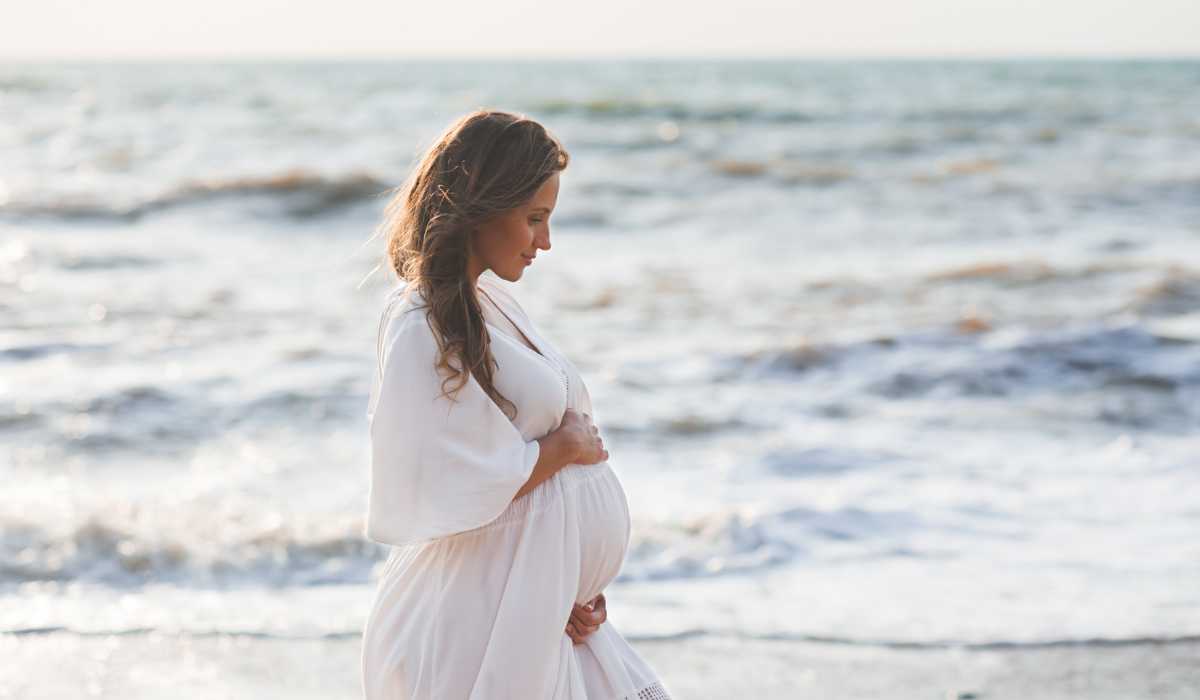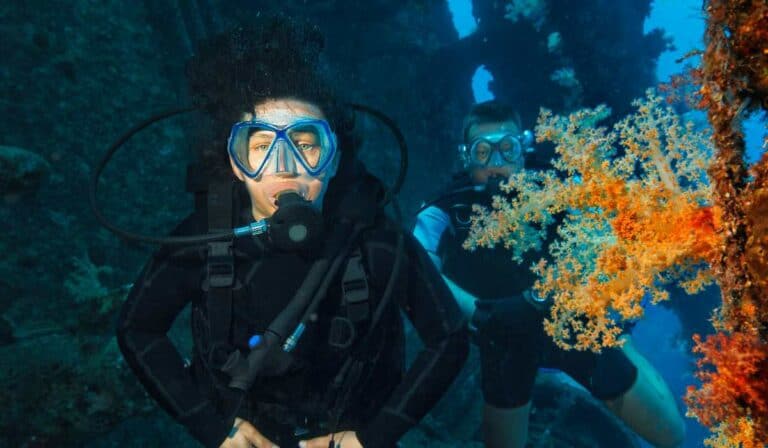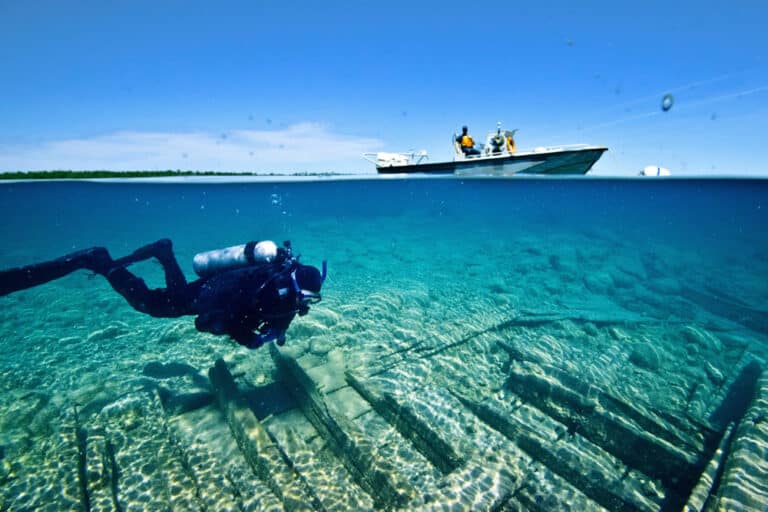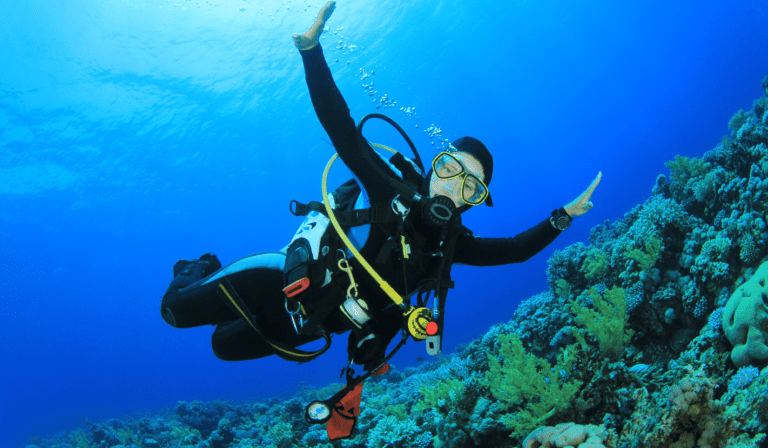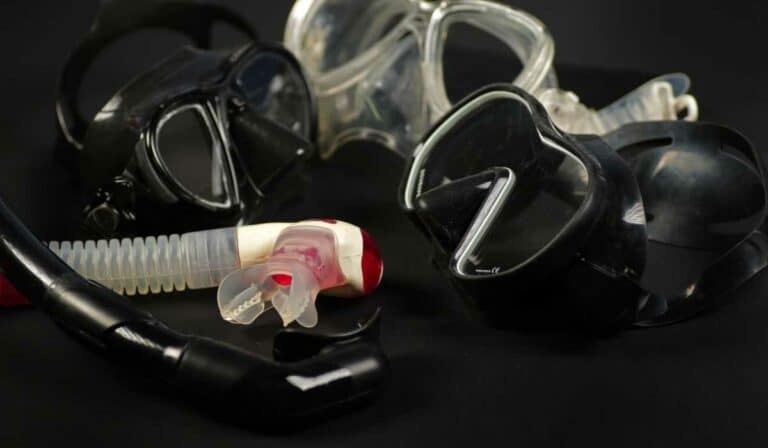Scuba Diving While Pregnant: What Every Woman Must Know
Scuba diving can be a thrilling and fulfilling experience, but it’s crucial to understand the potential risks and precautions associated with scuba diving while pregnant.
In this comprehensive post, we will discuss whether scuba diving is safe during pregnancy, delve into the risks involved, and identify when it might be considered safe to dive. Furthermore, we’ll outline the necessary precautions that should be taken if you decide to venture beneath the waves while expecting.
In conclusion, we’ll consider the potential advantages of scuba diving during pregnancy. By understanding all aspects of diving while pregnant, you can make informed decisions about your underwater adventures during this special time in your life.
Table of Contents
1. Is Scuba Diving Safe During Pregnancy?

Scuba diving is an exhilarating and adventurous activity that many people enjoy, but when it comes to pregnancy, there are certain precautions and considerations that need to be taken into account. The issue of whether scuba diving is permissible during pregnancy has been a contentious matter between medical personnel and those who take pleasure in the sport.
In general, most experts recommend avoiding scuba diving while pregnant due to the potential risks involved. Some research has suggested that, with the proper safety measures in place, recreational diving may be permissible during the early stages of pregnancy. It’s important for expectant mothers who wish to continue their underwater adventures to understand these risks and make informed decisions about their activities.
Click here to read about The History of Scuba Diving: Origins and Evolution
2. Potential Risks
- Decompression sickness: Also known as “the bends,” decompression sickness occurs when nitrogen bubbles form in the body’s tissues due to rapid changes in pressure experienced during ascent from a dive. Pregnant women may have an increased risk of developing decompression sickness because hormonal changes can affect gas exchange within the body (source). Additionally, if a fetus were exposed to decompression sickness through its mother’s bloodstream, it could potentially lead to serious complications or even miscarriage.
- Oxygen toxicity: While oxygen is essential for life, too much exposure to high pressures can become toxic and cause damage to cells (source). This condition primarily affects deep divers using enriched air nitrox mixtures; however, pregnant women should still be cautious about their oxygen exposure levels during dives.
- Physical strain: Scuba diving can be physically demanding, and the added weight of dive gear may place additional stress on a pregnant woman’s body. Given the potential risks, pregnant women should seek medical advice before diving.
In light of these potential risks, it is crucial for expectant mothers to consult with their healthcare providers before engaging in scuba diving activities during pregnancy. By understanding the potential risks and taking necessary precautions, one can decide if scuba diving is an appropriate activity during pregnancy.
Key Takeaway:
Expectant mothers who wish to continue scuba diving should understand the potential risks involved, such as decompression sickness, oxygen toxicity and physical strain. It is essential for expectant mothers to confer with their medical professionals before participating in any scuba activities during pregnancy, despite some research suggesting that leisure diving may be safe when appropriate precautions are taken.
3. What Are the Risks of Scuba Diving While Pregnant?
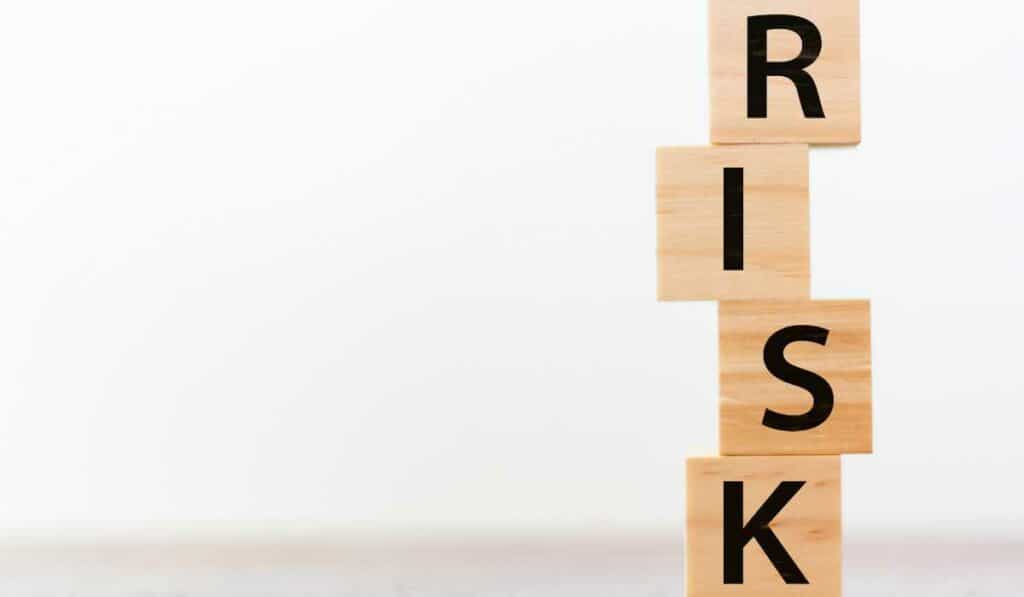
Scuba diving while pregnant poses several potential risks for both the mother and her unborn child. It is crucial to be aware of these risks before deciding whether or not to dive during pregnancy.
Decompression Sickness
Decompression sickness (DCS), also known as “the bends,” occurs when nitrogen bubbles form in a diver’s bloodstream due to rapid changes in pressure during ascent. These bubbles can cause pain, joint issues, and even damage vital organs if left untreated. Pregnant women are at an increased risk for DCS because hormonal changes may affect gas exchange within their bodies.
Fetal Development Issues
The unborn child is reliant on the maternal blood supply for oxygen and sustenance, making it susceptible to any issues that may result from scuba diving. The effects of high-pressure environments on fetal development are not well understood, but some studies suggest that exposure to hyperbaric conditions could lead to fetal malformations. Additionally, there is a theoretical risk of gas embolism affecting the placenta or fetus directly.
Barotrauma
Barotrauma refers to injuries caused by changes in air pressure during descent and ascent while scuba diving. Pregnant women might experience more severe barotraumas due to physiological changes, such as increased blood volume and hormonal fluctuations. Barotrauma can lead to ear pain, sinus issues, and even lung damage in severe cases.
Physical Exertion
Scuba diving can be physically demanding, especially when dealing with strong currents or carrying heavy equipment. Pregnant women may find it more challenging to manage these physical demands due to their changing bodies and decreased stamina. Exerting too much effort can possibly cause issues such as pre-birth labor.
Increased Risk of Infection
Due to the weakened immune system of pregnant women, they are more prone to infections. Scuba diving exposes divers to various microorganisms present in the water that could pose an infection risk for both the mother and her unborn child.
In light of these risks, it is essential for pregnant women considering scuba diving during pregnancy to consult with their healthcare provider before making any decisions.
Before deciding if scuba diving while pregnant is right for you, it’s important to consider the potential risks. However, with proper precautions in place there are times when scuba diving during pregnancy can be safe – let’s explore what those safety measures are in our next heading.
Click here to read about Scuba Diving in South America: The Ultimate Guide
Key Takeaway:
Scuba diving while pregnant poses several potential risks for both the mother and her unborn child, including decompression sickness, fetal development issues, barotrauma, physical exertion, and an increased risk of infection. Pregnant women mulling over the possibility of scuba diving during gestation ought to seek advice from their medical practitioner before settling on a decision.
4. When Is It Safe to Scuba Dive During Pregnancy?
Understanding when it is safe to scuba dive during pregnancy can be a bit confusing, as there are varying opinions on the matter. However, most experts agree that certain stages of pregnancy pose less risk than others for diving activities.
First Trimester
The American Pregnancy Association advises against scuba diving during the first trimester due to the increased risk of miscarriage and birth defects associated with this stage of pregnancy. The developing fetus is particularly vulnerable during these early weeks, so it’s best to avoid any potential risks or complications.
Second Trimester
The second trimester is generally considered a safer period for expecting mothers to engage in physical activities, including scuba diving. Before engaging in any new activity while pregnant, always consult your healthcare provider. Some doctors may still advise against scuba diving due to concerns about decompression sickness and its potential effects on both mother and baby.
Third Trimester
The third trimester brings additional challenges for those considering scuba diving while pregnant. As your body changes and prepares for childbirth, you may experience discomfort or difficulty maneuvering underwater gear and maintaining buoyancy control. Additionally, some studies suggest that fetal exposure to high-pressure environments could lead to an increased risk of low birth weight or premature delivery (source). Therefore, many experts recommend avoiding scuba diving altogether during this stage of pregnancy.
Comprehending the safety of both mom and baby while scuba diving during gestation is crucial. Taking proper precautions can help make sure that your diving experience remains enjoyable for everyone involved. Before partaking in this activity, it is necessary to take the proper precautions while pregnant.
Key Takeaway:
Before engaging in any activity related to scuba diving during pregnancy, it is essential to consult with a healthcare provider. During the mid-term of gestation, scuba diving is usually thought to be more secure; however, during the initial and concluding stages there may be increased risks related to potential issues such as miscarriage or premature delivery. Ultimately, it’s crucial to prioritize safety and follow all guidelines from reputable organizations like Divers Alert Network if you do decide to dive while pregnant.
5. Scuba While Pregnant – What Every Woman Must Know
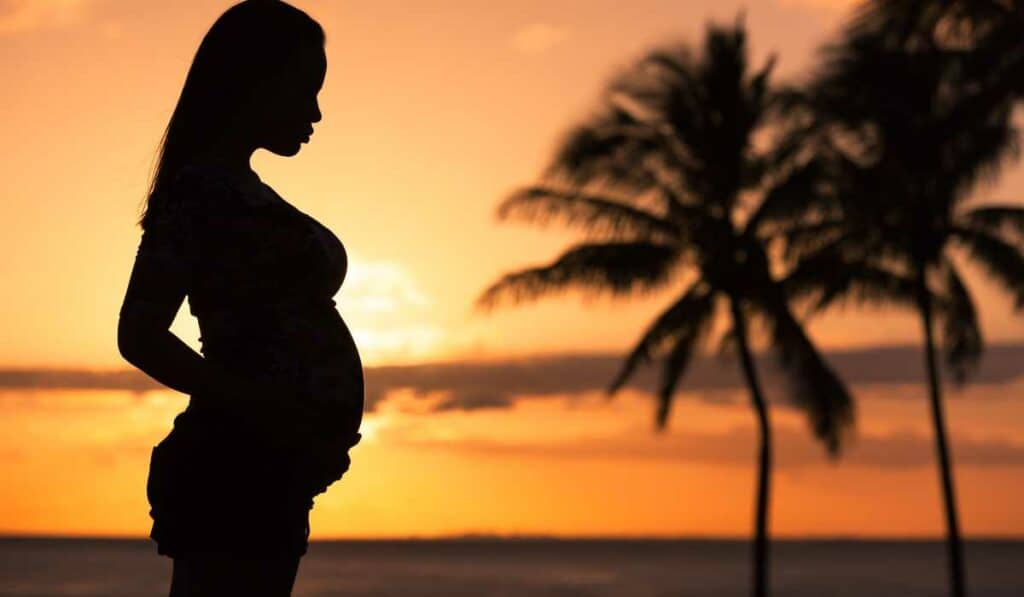
Scuba diving is an exciting and adventurous activity that many people enjoy. However, when it comes to pregnant women, scuba diving can pose some risks that need to be taken seriously. In this article, we will discuss what every pregnant woman must know before scuba diving.
1. Scuba Diving and Pregnancy Don’t Mix
Medical researchers have warned that scuba diving and pregnancy don’t mix. According to an undersea biomedical research journal conducted by the Divers Alert Network, scuba diving while pregnant can lead to pregnancy complications and birth defects in the unborn baby. The journal also states that pregnant women who scuba dive are at a higher risk of decompression sickness, which can be life-threatening for both the mother and the baby.
2. The Risks of Scuba Diving While Pregnant
Scuba diving involves breathing compressed air, which can lead to the formation of bubbles in the bloodstream. These bubbles can cause decompression sickness, a condition that can be fatal if not treated promptly. Pregnant women are at a higher risk of developing decompression sickness because of the physiological changes that occur during pregnancy. Additionally, scuba diving can lead to premature delivery, abnormal development, and other complications in developing fetuses.
Click here to read about Best Knives for Scuba Diving: Safety Tools for Exploring the Depth
3. Hyperbaric Oxygen Therapy and Scuba Diving
Hyperbaric oxygen therapy is a medical treatment that involves breathing pure oxygen in a pressurized chamber. This treatment is used to treat decompression sickness and other medical conditions. However, hyperbaric oxygen therapy can be harmful to developing fetuses. Pregnant women who have undergone hyperbaric oxygen therapy should avoid scuba diving to prevent further harm to their unborn child.
4. What Precautions Should Be Taken When Scuba Diving While Pregnant?
Scuba diving while pregnant can be a wonderful experience, but it’s essential to take certain precautions to ensure the safety of both mother and baby. Here are some guidelines that every expectant mother should follow when planning to dive during pregnancy:
A. Consult with Your Healthcare Provider
Before you even consider scuba diving while pregnant, it’s crucial to consult with your healthcare provider. They will assess your overall health and any potential risks associated with diving during pregnancy.
B. Choose Shallow Dives Over Deep Ones
If given the green light by your healthcare provider, opt for shallow dives instead of deep ones. This reduces the risk of decompression sickness and minimizes pressure changes on the fetus.
C. Monitor Your Breathing Rate Closely
Pregnancy increases oxygen consumption due to increased metabolic demands from both mother and baby. It is important for pregnant divers to monitor their breathing rate closely, ensuring they don’t overexert themselves or run out of air prematurely.
D. Stay Hydrated Before and After Diving Sessions
- Maintain proper hydration levels: Dehydration can lead to an increased risk of decompression sickness in all divers, including those who are pregnant.
- Avoid diuretics: Avoid consuming caffeine or other diuretics before a dive as they may increase dehydration risks.
E. Use Appropriate Gear That Fits Comfortably
As your body changes during pregnancy, it’s essential to use appropriate scuba gear that fits comfortably. This includes a properly fitting wetsuit and buoyancy control device (BCD) to accommodate your growing belly.
F. Dive with a Buddy or Instructor Who Is Aware of Your Pregnancy
Dive with someone who is aware of your pregnancy and any potential limitations you may have while diving. This ensures they can provide assistance if needed and help monitor your safety throughout the dive.
G. Listen to Your Body and Know Your Limits
Finally, always listen to your body when scuba diving while pregnant. If you feel discomfort, fatigue, or shortness of breath at any point during the dive, signal to your buddy or instructor immediately so they can assist in safely ending the dive.
Making sure to adhere to the suggested safety measures will enable an enjoyable experience for both mother and unborn baby as they explore beneath the waves.
It is essential to be conscious of potential hazards and take the necessary safety measures when scuba diving during pregnancy. With that in mind, let’s explore the potential benefits of this activity for expectant mothers.
Key Takeaway:
Scuba diving and pregnancy don’t mix, as it can lead to complications for both the mother and baby. Pregnant women who scuba dive are in danger of decompression illness, preterm labor, malformation of the fetus, and other risks to its growth. It’s crucial to consult with your healthcare provider before considering scuba diving while pregnant and take certain precautions like choosing shallow dives over deep ones, monitoring breathing rate closely, staying hydrated before/after diving sessions, using appropriate gear that fits comfortably, etc., to ensure the safety of both mother and baby.
Click here to read about Scuba Safety: Rules Everyone Must Follow While Diving
6. What Are the Benefits of Scuba Diving While Pregnant?
Although scuba diving while pregnant comes with its risks, there are also some potential benefits for both mother and baby if done safely and under proper guidance. Let’s explore these benefits:
A. Stress Relief
Studies have shown that engaging in physical activities during pregnancy can help reduce stress levels, which is beneficial for both the expectant mother and her unborn child. The serene underwater environment experienced while scuba diving can provide a calming effect on the mind, helping to alleviate anxiety.
B. Exercise
Maintaining an active lifestyle during pregnancy has been proven to be advantageous for overall health and well-being. The American Pregnancy Association recommends 30 minutes of moderate exercise most days of the week for pregnant women who do not have any complications or restrictions from their healthcare provider.
- Muscle Strength: Scuba diving helps strengthen various muscle groups due to swimming against currents and carrying equipment.
- Flexibility: Maneuvering through water requires flexibility in joints and muscles, which is essential during pregnancy as it prepares your body for childbirth.
- Circulation: Swimming increases blood circulation throughout your body, ensuring that vital nutrients reach your growing baby more efficiently.
C. Bonding Experience
Taking part in exciting adventures like scuba diving can create a unique bonding experience between the expectant mother and her partner. Sharing these memorable moments can strengthen your relationship, providing emotional support during pregnancy.
D. Connection with Nature
Scuba diving allows you to connect with nature on a deeper level by exploring the underwater world filled with vibrant marine life. This connection can provide an enhanced appreciation for our planet’s beauty and fragility, fostering a sense of responsibility towards preserving it for future generations – including your unborn child.
Before deciding to go scuba diving during pregnancy, it is important to consider the risks and consult your healthcare provider for advice. Remember that safety should always be your top priority when engaging in any activity during pregnancy.
Key Takeaway:
Scuba diving while pregnant can have potential benefits such as stress relief, exercise, bonding experience, and connection with nature. It is vital to speak with a medical expert prior to making any decisions and prioritize safety over all else. Swimming against currents and carrying equipment during scuba diving helps strengthen various muscle groups which is essential during pregnancy for flexibility in joints and muscles that prepare the body for childbirth.
If you’re a scuba diving enthusiast and you’re pregnant, you may be wondering if it’s safe to continue diving. Unfortunately, scuba diving and pregnancy don’t mix. In this article, we’ll discuss the risks associated with scuba diving while pregnant and what every woman must know.
FAQS about Scuba Diving While Pregnant: What Every Woman Must Know
What happens if you go scuba diving while pregnant?
Scuba diving while pregnant can pose risks to both the mother and the unborn child. The fetus is not protected from decompression sickness, which could lead to birth defects or miscarriage.
Additionally, increased pressure underwater may affect fetal development and oxygen supply. It’s best to consult a medical professional before engaging in any dive activities during pregnancy.
What are 3 things that a pregnant woman should avoid while pregnant?
Contact sports: Activities with a high risk of falling or physical contact can cause injury to the mother and baby.
Hot tubs and saunas: Overheating can increase the risk of birth defects, especially during early pregnancy stages. Pregnant women should avoid exposure to high temperatures for extended periods.
Certain medications: Some prescription drugs, over-the-counter medicines, and herbal supplements may be harmful during pregnancy. Consult your healthcare provider before taking any medication.
Can you scuba dive at 6 weeks pregnant?
No, it is not recommended to scuba dive at any stage of pregnancy due to potential risks such as decompression sickness affecting the fetus or complications related to changes in blood flow and oxygen levels underwater pressure conditions.
Always consult your doctor before participating in recreational activities like scuba diving when expecting a baby.
Can you go shallow scuba diving while pregnant?
In general, it’s advised against participating in any form of scuba diving while pregnant regardless of depth due to potential health risks for both mother and unborn child. However, snorkeling might be considered an alternative option since it doesn’t involve pressurized environments associated with deeper dives. Consult your healthcare provider before engaging in any water activities during pregnancy.
Remember, the health and safety of you and your unborn child should always come first. While scuba diving may be a fun and exciting activity, it’s not worth risking the health of your developing fetus. If you’re an avid diver, consider taking a break during your pregnancy and explore other activities that are safe for you and your baby.
Conclusion
Though scuba diving can be dangerous for pregnant women, with the right safety measures and medical clearance it may still be possible. However, with proper precautions and medical clearance from a doctor, some women may be able to safely scuba dive during pregnancy.
If you’re considering scuba diving while pregnant, make sure to talk to your doctor first and follow all recommended safety guidelines. While there are benefits to scuba diving during pregnancy such as stress relief and exercise, it’s crucial to prioritize the health of yourself and your developing fetus above all else.

